
A Brief History of "Progressive" Education
In their drive to “fundamentally transform” America, liberals have accomplished much since 2008. Yet one of the Left’s biggest victories was, until recently, unknown by most Americans: the Common Core State Standards.
Common Core is perhaps the most radical transformation of K-12 education in American history. It replaces what little remains of traditional education in the public school system with post-modern nonsense that will severely harm an already ailing education system. It injects a socialistic worldview and philosophy of education into the classroom, one that ridicules traditional Western literature and completely rewrites that way math has been taught in the West for centuries.
Moreover, Common Core effectively destroys the teacher-parent-student relationship. It strips parents, teachers, school districts, and state boards of education of control over curriculum, imposes an onerous, bureaucratic regime of standardized testing, creates a massive data collection scheme that tracks both students and teachers, and ultimately transforms the teacher into little more than a functionary of a de facto national education system.
Common Core is not an isolated phenomenon, but rather the latest step in the long march of the so-called “progressive education” movement. This movement's origin goes back many decades, even centuries. Despite its high-sounding slogans and goals, it is not really a movement to perfect true education or even raise test scores. Rather, it is a movement primarily concerned about social and political “change.”
The Left has always placed great importance on using the schools to attain its ends. Socialist governments almost always take control of education away from Churches and religious orders. In communist countries it was banned entirely. Control over the formation and education of youth, and therefore their spiritual and philosophical worldview, is the single most important factor in bringing about the triumph of socialism.
As part of the broader socialist movement, progressive education “reformers” see education as a useful means to build a socialist society, making it more egalitarian, atheistic, and centrally controlled. They see the influence of Christianity – as well as the family, tradition, and Christian culture – as the greatest obstacles to this end. According to the Left, education should serve to inoculate a child from these supposedly destructive influences, freeing him to embrace his true role, that of a cog, a worker, and a faceless member of the masses -- or, as the Common Core architects would say, a member of the “twenty-first century global economy.”
The Roots of Progressive Education
Common Core is the offspring of a long line of Revolutionary education “reformers.” Its roots can be found in the Enlightenment, the philosophical movement that spread throughout Europe in the 18th Century. Although it covered a vast range of topics and contained differing and often contradictory schools of thought (and degrees of radicalism) its philosophers generally advocated the following ideas:
- Make society secular by removing the influence and control of the Church in every field of public life, including education;
- Maximize the power and control of the State at the expense of the Church and other intermediary organizations;
- Replace the Church with a new man-centered, naturalistic religion. This new religion was to be egalitarian and materialistic.
After the French Revolution in 1789, these ideas continued to develop well into the 19th century. As Fr. W. Kane, S.J. explains in his book, A History of Education:
“Liberty! Equality! Fraternity! was the cry introducing a new heaven upon earth; new political governments, purged of privilege and selfishness, purely ordered ‘of the people, by the people, for the people’; new social alignments, in which the State, which was now to be the people themselves, would absorb the individual; a new morality, discarding divine authority, self-contained, having its rules and its sanctions in the individual human being and in the mass of humanity. To bring this to pass, all that was needed was enough schools, of the right sort, the common property of all, freed of the superstitious churches, ‘democratic’ as the State itself was to be. Man was to be redeemed anew, not by Jesus Christ, but by himself through the schools. Education was to make him the perfect social being, altruistic, lost in devotion to the common good, yet somehow acquisitive enough to secure for himself a full share of wealth and pleasure and fame and power without preventing his neighbor from attaining the same success.”
Notable Education “Reformers”
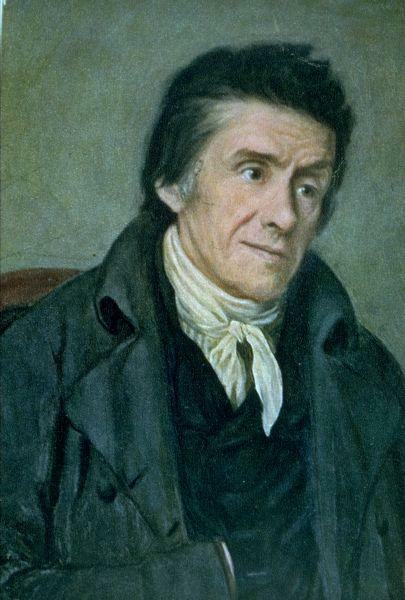
Johann Heinrich Pestalozzi (1746-1827) of Switzerland gave great impetus to “democratic” education reform. He is considered the father of modern education. Some of his main ideas include:
-- Universal State education for every child;
-- Education should be built upon manual labor and above all prepare students to be workers. He wrote that students “should be devoted to their true destiny, learning to do manual work. Reading, writing, reckoning should not be begun until they are several years older;”
-- Education is a means to level social classes.
Modern pedagogy should reject objective authority (i.e. religion, and especially the Catholic Church) and be based on subjective introspection.
Pestalozzi’s influence was far reaching both in Europe and the United States. Schools modeled on his ideas were founded in Indiana, Kentucky, Ohio, and Pennsylvania.
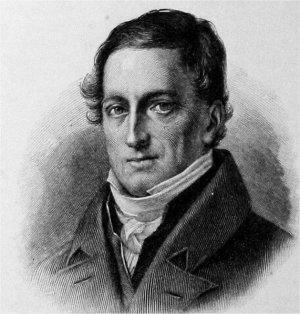
Johann Friedrich Herbart (1776-1841) was born in the northern German city of Oldenburg. His influential theories made education more materialistic and mechanistic.
He affirmed a materialistic conception of the human mind and soul. He taught that the mind was nothing more than the accumulation of experiences that coalesce into a type of mass which we call the human mind. For him, children’s minds were like little machines, just as people today consider the brain to be a type of highly developed computer.
He taught that education should be merely a mechanical transmission of knowledge rather than the formation and education of a unique, spiritual soul.
Because of his materialism, he taught that education is a science, and can therefore be reduced to rules and laws like physics, mathematics or chemistry.
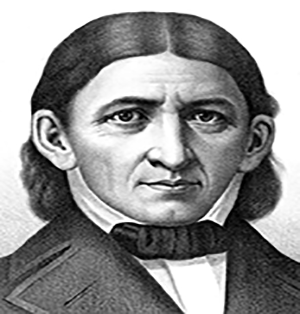
Friedrich Fröbel (1782-1852) was born in Oberweissbach in what is now Germany and went on to study under Pestalozzi. He made several troublesome contributions to modern pedagogy: As a Pantheist, he adopted the Enlightenment theories of Jean Jacques Rousseau – which deny the Catholic concept of Original Sin and make man out to be naturally “good” and “divine.” He defined education as “the unfolding of the divine essence of man.”
He claimed that the problem with education was that man’s original “goodness” was “marred” because of tradition, customs, and religion passed on by the family. The solution, therefore, was to begin the education of children as early as possible.
His is credited with inventing the concept of kindergarten, which he set up to prevent such “marring” and by withdrawing examples and influences which might set up any strains in children’s “original wholeness.”
He was hostile to the idea of a reward in the afterlife and in teaching any type of dogmatic religion, and believed that education would make “men as gods,” not in heaven, but right here on this “democratic earth.”
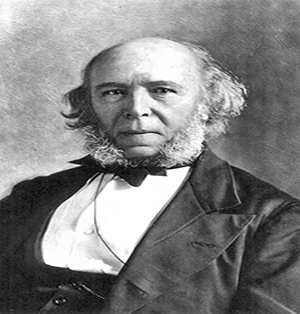
Herbert Spencer (1820-1903) was probably the most important and influential education reformer of the 19th century. Born into a Protestant family in England, he quickly grew hostile to all religion and authority in general.
He taught that the only thing for which education should prepare a person is material happiness on this earth.
He believed that “science” is the most important subject, and literature, history, and philosophy should have little or no place in school. According to him, the teaching of ancient languages such as Greek and Latin was a useless diversion.
He was a materialist, affirming that all the functions of the mind can be reduced to physical and chemical processes of the brain.
Spencer’s ideas spread in Europe and especially the United States, where they were more popular than in his native Britain. Even Japan, which had recently opened up to the West, completely revamped its education methods to coincide with Spencer’s theories.
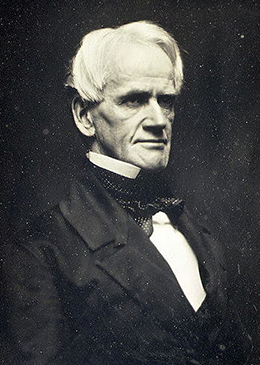
Horace Mann (1796-1859) is widely considered the “father” of the American Public School system. A Massachusetts lawyer and politician, he became the most prominent American activist for State-funded public schools which he called “common schools.”
He believed that religion, particularly Christianity, was harmful to education. He fought to create a system of secular public schools that would be administered, staffed, and funded exclusively by the state. He believed in compulsory public school education. Above all, he saw that public schools were not just a public good, but the most effective means of establishing an egalitarian, democratic utopia here on earth.
Education reformers commonly see themselves as “messiahs” that will save humanity through education. Horace Mann was no exception for he believed that public schools would solve all social and moral evils:
“The common [public] school is the greatest discovery ever made by man… Let the common school be expanded to its capabilities, let it be worked with efficiency of which it is susceptible, and nine-tenths of the crimes in the penal code would become obsolete; the long catalogue of human ills would be abridged; man would walk more safely by day; every pillow would be more inviolate by night; property, life, and character held by a stronger tenure; all rational hopes regarding the future brightened.”
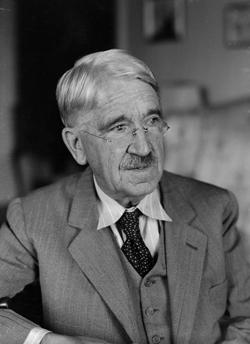
John Dewey [1859-1951] is truly a giant in the history and philosophy of modern education, not only in the United States but the world. It is difficult to exaggerate his enduring influence on America, and he is rightly considered the father of "progressive" education. His philosophy had more influence on American teachers, superintendents, and education methods than any other man before or since.
In 1949, Time magazine wrote: “almost every public U.S. school has become Deweyized.”
Dewey was a communist sympathizer. He toured the Soviet Union in the 1920s, writing a series of articles titled “Impressions of Soviet Russia” in which he praised the Bolshevik Revolution and the Communist education system that Lenin and Stalin were building:
“The [Russian Revolution] impressed me...there was a life full of hope, confidence, almost hyperactive...[The Russian government] is one as interested in giving [the people] access to sources of happiness as the only other government [the Tsar] with which they have any acquaintance was to keep them in misery...I can speak glowingly of Russia with any degree of confidence only as the animating purpose and life of that country are reflected in its educational leaders and the work they are attempting.”
Like any good socialist, John Dewey saw the purpose of education not as a means to transmit the deposit of truths accumulate by previous generations, nor the perfection of one’s individual qualities, but merely as a tool to socialize society:
“The moral responsibility of the school and of those who conduct it is to society. [So that] apart from participation in social life, the school has no moral end or aim. [In religious terminology] the moral trinity of the school [is] the demand for social intelligence, social power, and social interests."
Dewey attributed the material progress of the twentieth century as a result of replacing purely “intellectual” education with “practical” and “material” subjects. Modern education, he insisted, must purge itself of the purely intellectual in order to neutralize the bad effects of the subordination of matter to the spirit. In other words, unless a subject has a practical or technical application in the advancement of material progress, it has no value and should be done away with.
For Dewey, this type of education would fulfill the socialist dream of leveling social classes:
"It is fatal for a democracy to permit the formation of fixed classes...For education...the distinction of classes must be definitely done away with. Such is the principle, the law, that dominates the whole social conception of education."
According to Dewey, the idea of God and religion in the life of man is an absurdity that inhibits the development of society and the individual. As a naturalist and Humanist, he flatly rejected the existence of the supernatural. He called Christian belief in divine grace, and its role in supporting man’s weakness, the “suicide of reason.”
Dewey believed that God, religion, moral absolutes, and the supernatural are the greatest enemies of education and society:
“A democratic society repudiates the principle of external authority [and] must find a substitute in voluntary disposition and interest; these can be created only by education."
"Men have never fully used the powers they possess to advance the good in life, because they have waited upon some power external to themselves and to nature to do the work they are responsible for doing. Dependence upon an external power is the counterpart of surrender of human endeavor."
Above all, Dewey hated tradition. Like his spiritual descendants in our own time, he had an absolute preference for new things simply because they were new, and a rejection of the old simply because it was old:
“A chief task of those who call themselves philosophers is to help get rid of the useless lumber that blocks our highways of thought, and strive to make straight and open the paths that lead to the future.”
These beliefs are the basis of the modern, socialist education schemes of the 20th and 21st centuries. Schemes like Common Core are the ideological descendants of the Enlightenment, Classical Liberalism, the Progressive Theories of John Dewey. They are based on a Revolutionary conception of man and society. What we have seen so far is just the tip of the iceberg of the history of education, but it is necessary to understand that Common Core is the final end of a process that has be developing for centuries.

